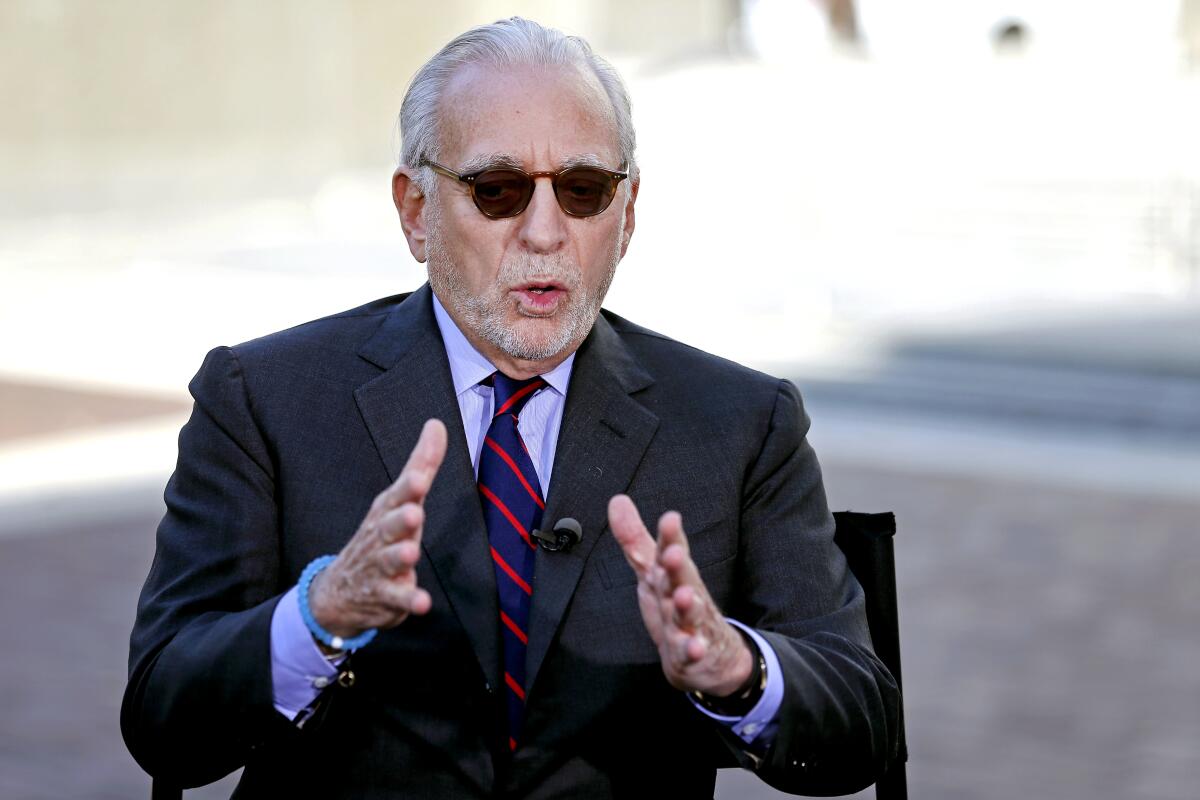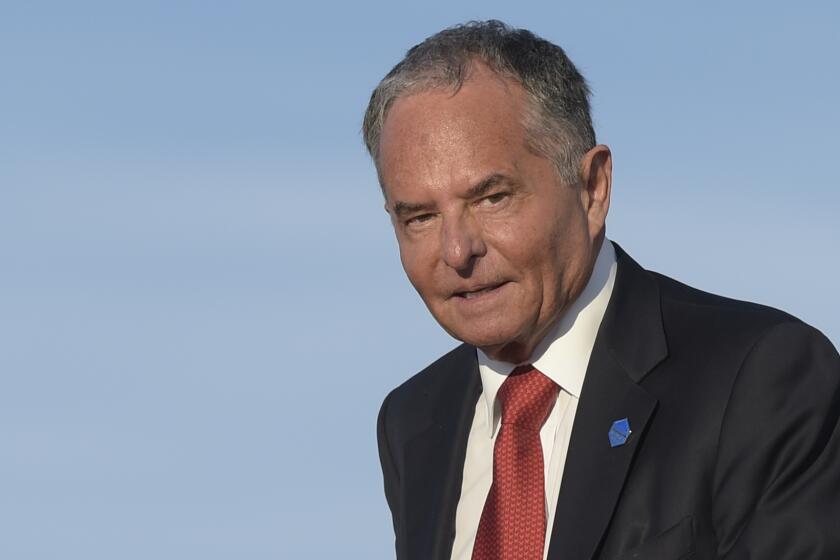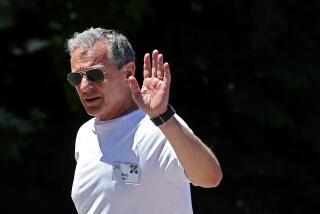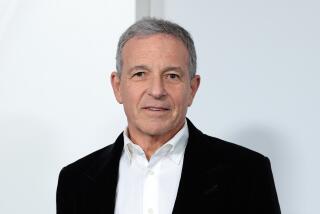Disney activist investor Nelson Peltz revives proxy fight after stock slump

- Share via
Billionaire activist investor Nelson Peltz is reviving his proxy campaign with Walt Disney Co., after his hedge fund Trian Fund Management increased its stake in the Burbank entertainment giant, which continues to see its stock struggle.
Trian has boosted its stake in Disney to about 30 million shares, valued at roughly $2.5 billion, according to people familiar with the matter who were not authorized to comment, making Trian one of the company’s biggest investors. The fund is looking to push for multiple Disney board seats, those people said.
Trian and Disney declined to comment.
The renewed fight from Peltz and his firm, first reported by the Wall Street Journal, is another thorn in the side of Disney Chief Executive Bob Iger, who is in the middle of an effort to reverse the Mouse House’s fortunes. The company is trying to make its streaming business — which includes Disney+ and Hulu — profitable, while also contending with the precipitous decline of the traditional television business and other headwinds.
Disney’s stock has declined about 12% in the last 12 months. Shares of Disney rose 1.4% to $84.09 in midday trading.
Peltz’s previous effort to join the Disney board ended in February, after Iger laid out a dramatic cost-cutting plan that included the elimination of 7,000 jobs. Disney has said that it expects to exceed the $5.5 billion in savings it had targeted earlier.
The statement comes after Disney Chief Executive Bob Iger detailed a major restructuring of the company this week, including 7,000 job cuts.
Trian had amassed 9.4 million shares of Disney, worth roughly $900 million. Trian sent letters to Disney stockholders asking them to vote for Peltz (or his son Matthew) to join the board and to not vote for current board member Michael Froman, a former U.S. trade representative.
Peltz sharply criticized the company, alleging poor succession planning and “self-inflicted” wounds such as the $71.3-billion acquisition of 21st Century Fox, which brought in valuable properties such as “Avatar” and “The Simpsons” but increased Disney’s debt load significantly.
After Disney unveiled its cost-cutting plans, Peltz declared victory in an interview with CNBC.
“Now Disney plans to do everything we wanted them to do,” Peltz told Jim Cramer at the time. “We wish the very best to Bob, this management team and the board. We will be watching. We will be rooting.”
Peltz added, “The proxy fight is over.”
Peltz’s efforts to join the Disney board started when Bob Chapek was still CEO, but continued after Iger made his return in November last year. Peltz was supported by former Marvel Entertainment CEO Isaac “Ike” Perlmutter, who was subsequently ousted from his Disney role amid the broader shakeup.
Like other legacy media giants, Disney is struggling to adjust the costly business of streaming while the profitable TV industry faces cord-cutting and falling ratings.
The former chief executive of Marvel Entertainment has long been a thorn in the side of Disney CEO Bob Iger.
Iger has recently flirted with the idea of selling linear TV businesses, including broadcaster ABC, though the company has said it hasn’t made a decision to divest.
The company has also signaled interest in finding a strategic minority partner for cable sports giant ESPN, which is expected to make itself available as a standalone streaming service in the coming years. The company already has ESPN+, which offers a limited selection of sports content.
Disney recently settled a carriage dispute with Charter Communications that blacked out Disney channels, including ESPN, Freeform and local ABC stations, for 15 million Spectrum pay-TV customers. Disney and other studios have also been dealing with the fallout of the Writers Guild of America and SAG-AFTRA strikes.
The nearly five-month writers’ strike ended late last month with a tentative agreement on a new three-year contract, which is expected to be ratified soon by the guild’s 11,500 members. SAG-AFTRA, which has been on strike since mid-July, began negotiating with the studios again last week.
Disney, meanwhile, has restructured its business to return power to the creative executives at the company, while also promising to pull back on the pace of production of movies and TV shows, including from franchises such as Marvel, in order to improve quality. The company has also indicated a major increase in investment in its parks.
More to Read
Inside the business of entertainment
The Wide Shot brings you news, analysis and insights on everything from streaming wars to production — and what it all means for the future.
You may occasionally receive promotional content from the Los Angeles Times.













